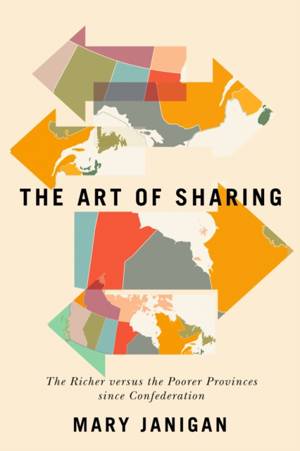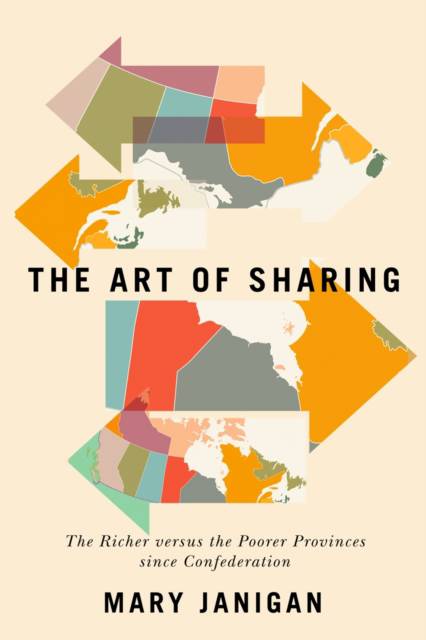
- Afhalen na 1 uur in een winkel met voorraad
- Gratis thuislevering in België vanaf € 30
- Ruim aanbod met 7 miljoen producten
- Afhalen na 1 uur in een winkel met voorraad
- Gratis thuislevering in België vanaf € 30
- Ruim aanbod met 7 miljoen producten
Zoeken
The Art of Sharing
The Richer Versus the Poorer Provinces Since Confederation Volume 250
Mary Janigan
€ 60,45
+ 120 punten
Omschrijving
In 1957 after a century of scathing debates and threats of provincial separation Ottawa finally tackled the dangerous fiscal inequalities among its richer and poorer provinces. Equalization grants allowed the poorer provinces to provide relatively equal services for relatively equal levels of taxation. The Art of Sharing tells the dramatic history of Canada's efforts to save itself. The introduction of federal equalization grants was controversial and wealthier provinces such as Alberta - wanting to keep more of their taxpayers' money for their own governments - continue to attack them today. Mary Janigan argues that the elusive ideal of fiscal equity in spite of dissent from richer provinces has helped preserve Canada as a united nation. Janigan goes back to Confederation to trace the escalating tensions among the provinces across decades as voters demanded more services to survive in a changing world. She also uncovers the continuing contacts between Canada and Australia as both dominions struggled to placate disgruntled member states and provinces that blamed the very act of federation for their woes. By the mid-twentieth century trapped between the demands of social activists and Quebec's insistence on its right to run its own social programs Ottawa adopted non-conditional grants in compromise. The history of equalization in Canada has never been fully explored. Introducing the idealistic Canadians who fought for equity along with their radically different proposals to achieve it The Art of Sharing makes the case that a willingness to share financial resources is the real tie that has bound the federation together into the twenty-first century.
Specificaties
Betrokkenen
- Auteur(s):
- Uitgeverij:
Inhoud
- Aantal bladzijden:
- 496
- Taal:
- Engels
- Reeks:
Eigenschappen
- Productcode (EAN):
- 9780228002109
- Verschijningsdatum:
- 23/07/2020
- Uitvoering:
- Paperback
- Formaat:
- Trade paperback (VS)
- Afmetingen:
- 147 mm x 226 mm
- Gewicht:
- 635 g

Alleen bij Standaard Boekhandel
+ 120 punten op je klantenkaart van Standaard Boekhandel
Beoordelingen
We publiceren alleen reviews die voldoen aan de voorwaarden voor reviews. Bekijk onze voorwaarden voor reviews.







